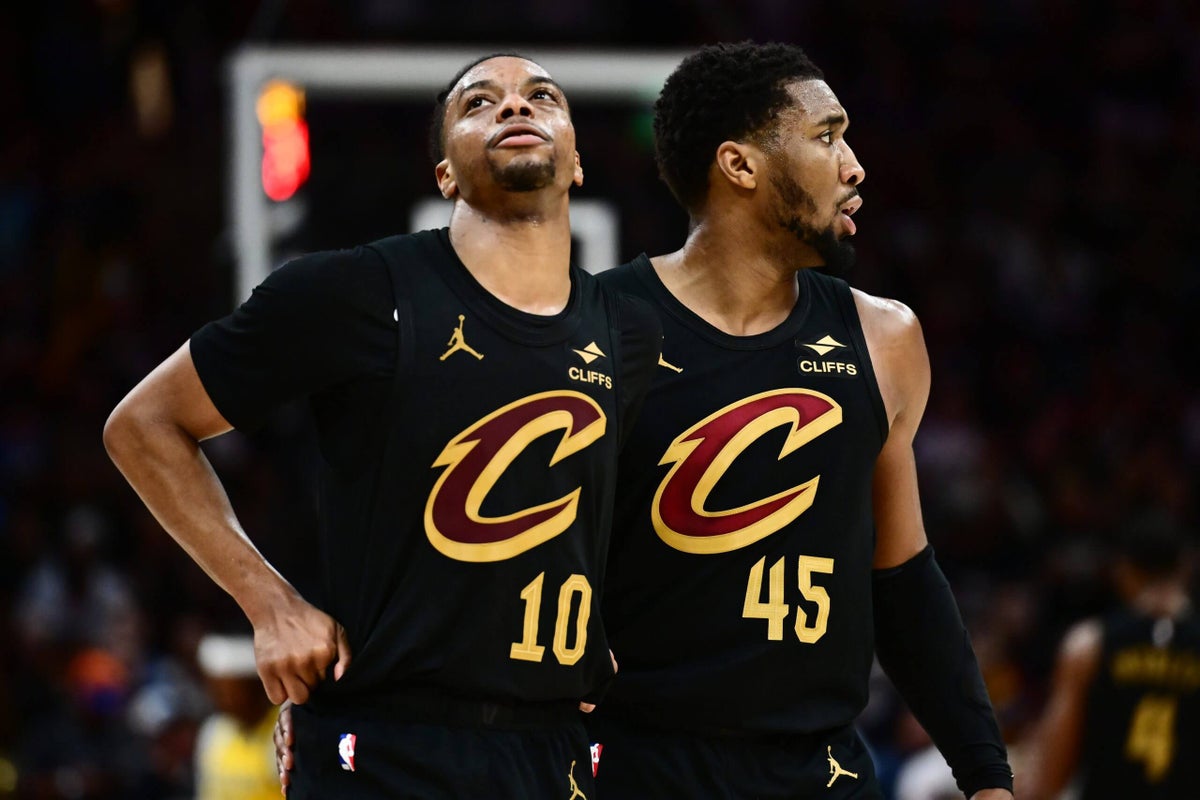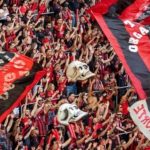

INDEPENDENCE, Ohio — We’ve reached the point in the NBA ecosystem where there is always another deadline. If it isn’t with a contract extension involving a star player or the threat of a looming trade demand, now it’s with a league determined to detonate and regenerate itself every couple of years.
The collective bargaining agreement ensures it.
Advertisement
So while Cavs president Koby Altman stressed patience and the long runway that still remains in front of a team that badly underachieved this postseason, the reality is the Cavs’ “runway” is beginning to look more like a four-way stop.
When Altman acquired DeAndre Hunter at the trade deadline, I wrote that their contention window was the next three postseasons, which is a lifetime in the NBA. That’s still true. Three postseasons is exactly how long Kevin Durant spent with the Golden State Warriors. It’s one year less than the Cavs’ previous contention window with LeBron James.
Those teams were constructed under the old rules of engagement, back when teams could stay in the contention lane as long as their owner had the stomach to write hefty checks covering all the luxury taxes.
Now, the rules for the highest-spending teams restrict roster building, invoke essentially a hard cap, and freeze future draft picks. It takes roster building well beyond which owners have the biggest Bic.
So, while three years to contend remains a substantial amount of time, this CBA has effectively sped up the decision-making process of contending front offices every offseason. Executives don’t have the luxury of time as much as they once did.
When Altman says the Cavs still have a lot of time in front of them because of the age of the key players, and how he wants to see this through the way the Boston Celtics and Oklahoma City Thunder did, that’s only half true.
Altman pointed out that the Celtics stayed together for seven years before breaking through with a championship, and the Thunder were eliminated in the second round last year after earning the top seed in the West. It’s similar to the Cavs’ path this year.
Oklahoma City broke that barrier by eliminating the Denver Nuggets and advancing to the conference finals this season. But the Celtics didn’t win it all until they traded Marcus Smart for Kristaps Porzingis, and the Thunder dealt Josh Giddey, who started 80 games for them last season, for Alex Caruso. Both were significant changes to the core of each team.
Advertisement
Nevertheless, Altman insists the Cavs are going to see this through. He isn’t anticipating major changes, in part because the CBA won’t allow any and in part because he is proud of the roster the Cavs have built over the last seven years. He wants to give it every chance to succeed.
So forget about any wacky trade ideas that would deliver Durant or Giannis Antetokounmpo to Cleveland. Start with contract logistics making such deals nearly impossible — the Cavs as a second-apron team cannot aggregate salaries — and add to it my skepticism that Milwaukee Bucks owner Jimmy Haslam would be eager to help another Cleveland team besides the Browns win a championship. The same is true of Phoenix Suns owner Mat Ishbia, who would rather lose an organ than lose Durant to his archnemesis Dan Gilbert.
There is no one riding in to save them. This is who the Cavs are and who they’re going to be, for better or worse.
In the span of only a few months, we’ve seen them at their very best and most likely what was their very worst. Injuries certainly played a role. So did the Cavs’ inability to make shots at the most important times.
Altman acknowledged the team has to get mentally tougher. He challenged Mobley to take yet another leap in his progression after winning Defensive Player of the Year this season and he wants Darius Garland to get physically stronger. I asked Altman if he equates mental toughness to learning how to play through injuries.
“There’s a level of misfortune we had this year,” Altman said. “I feel like we navigated the regular season so well with injuries. This was by far and away our best year from an injury prevention standpoint with the plan we laid out. … But there’s a reason that the four conference finalists have zero rotational players missing.”
To Altman’s point, Garland played in a career-high 71 games. Jarrett Allen played in all 82. Donovan Mitchell played in 71 games, his most in six seasons. As for the mental toughness of learning to play through pain, don’t take my word for it.
Advertisement
Richard Jefferson and Channing Frye are Cleveland royalty after their roles in helping deliver the Cavs a championship in 2016. Both joined Kendrick Perkins, also a former Cav, in hammering the current group of Cavs on a recent “Road Trippin’” podcast for how these players fought through — or more accurately, didn’t fight through — injuries during the Pacers series.
Frye, a former NBA center, shredded Allen for his lack of toughness, for failing to play through the rib injury last year and for letting Myles Turner and Pascal Siakam get the better of him physically again this year.
Jefferson slammed Garland, Hunter and Mobley for all missing a critical Game 2 that the Cavs lost in the final minute.
“All of us can’t not play,” Jefferson said of the decision for all three to sit out. “As a player, you’re like, ‘Wait, all three of us aren’t playing? Somebody’s gotta go. Somebody has to help this out. We’re down 0-1. We might f— around and be down 0-2.’ If that’s not your mentality, that I’m going to push through this s—. … Somebody has to.”
Altman conceded that Game 2, when the Cavs blew the game in the final minute, will haunt the organization for quite some time.
They’ll have all summer to think about it. And when they reassemble in the fall, they’ll be counting on many of the same people who just crashed the plane to try again at getting it off the runway.
(Photo of Darius Garland, left, and Donovan Mitchell: Ken Blaze / Imagn Images)
This news was originally published on this post .








Be the first to leave a comment